News written by Rich Fiscus (January, 2009)
Written by Rich Fiscus @ 30 Jan 2009 9:52
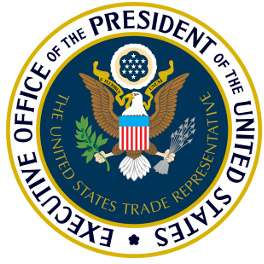 Several months ago documents outlining a secret proposal from the US Trade Representative (USTR) for a new intellectual property treaty were leaked to the public. Although the few details we know about negotiahe Anti-Counterfeiting Trade Agreement (ACTA) show it to be a collaboration between entertainment industry representatives and government officials in various countries. Unfortunately most of what's been published so far is really just speculation.
Several months ago documents outlining a secret proposal from the US Trade Representative (USTR) for a new intellectual property treaty were leaked to the public. Although the few details we know about negotiahe Anti-Counterfeiting Trade Agreement (ACTA) show it to be a collaboration between entertainment industry representatives and government officials in various countries. Unfortunately most of what's been published so far is really just speculation.
In an attempt to bring these negotiations into the open for everyone, instead of just entertainment industry lobbyists, the Electronic Frontier Foundation (EFF) has filed a request under the Freedom of Information Act. But the office of the USTR has been less than forthcoming with information.
In fact they're actively trying to block the release of almost all the information requested. So far they've turned over just 159 pages to the EFF, while insisting that 1300 pages need to be remain secret.
And what reason are they citing for the secrecy. Actually there are two reasons given. The first is mostly just laughable. They claim some of the documents would endanger national security if released. But the other claim seems to just miss the point. The USTR is claiming an exemption from turning documents over that would expose their "deliberative process." If I'm not mistaken that's exactly the point of the request.
Read more...
Written by Rich Fiscus @ 30 Jan 2009 11:31
 It's no secret that certain elements in the US Federal Government would like to see all copyright infringement criminalized and the Department of Justice used as an enforcement agency for intellectual property owners. What gets less publicity is the work by the office of the US Trade Representative (USTR) to similarly effect the law in other countries. Earlier this week the USTR's office issued a press release declaring victory in one such case against China, but behind their celebration is actually a significant defeat.
It's no secret that certain elements in the US Federal Government would like to see all copyright infringement criminalized and the Department of Justice used as an enforcement agency for intellectual property owners. What gets less publicity is the work by the office of the US Trade Representative (USTR) to similarly effect the law in other countries. Earlier this week the USTR's office issued a press release declaring victory in one such case against China, but behind their celebration is actually a significant defeat.
Although the World Trade Organization (WTO) agreed with US claims that China isn't living up to their obligation to protect foreign copyrights under the Agreement on Trade Related Aspects of Intellectual Property Rights (TRIPS). The portion of the treaty in question requires that all participants at least criminalize willful commercial infringement of intellectual property.
Specifically, a WTO panel concluded that the US hadn't profided any real evidence since it was all in the form of newspaper clippings. According to the WTO report, "the Panel does not ascribe any weight to the evidence in the press articles and finds that, even if it did, the information that these press articles contain is inadequate to demonstrate what is typical or usual in China for the purposes of the relevant treaty obligation."
Read more...
Written by Rich Fiscus @ 29 Jan 2009 7:42
 In an attempt to fight movie piracy the UK Film Council has set up a website aimed at helping consumers find legal content. FindAnyFilm.com has a simple form where you can simply enter a movie's title and find out what formats it's available in and where.
In an attempt to fight movie piracy the UK Film Council has set up a website aimed at helping consumers find legal content. FindAnyFilm.com has a simple form where you can simply enter a movie's title and find out what formats it's available in and where.

This is similar to a plan announced last year by the MPAA, although much broader in scope. Besides searching for titles, you can also use the website to locate movie theaters. There are also trailers available to watch.
Peter Buckingham, Head of Distribution and Exhibition at the UK Film Council who pioneered this new site says "This new site is going to transform how consumers find the films they want to watch - we will soon wonder how we ever coped without it! We have turned what was often an incredibly time-consuming, frustrating process into one that makes it much easier for film fans to see films in the UK. FindAnyFilm.com does exactly what it says on the tin and is the fastest place to find a film to watch in any format, if it's legally available in the UK."
Written by Rich Fiscus @ 29 Jan 2009 6:58
 It's no secret that the big Hollywood studios haven't exactly been eager to back online video distribution. In fact their unwillingness to assume any risk in such ventures has arguably slowed the entire market more than any other force. That's why it's so surprising to see a company owned by several studios announcing a new service that will combine television and internet-based video on demand.
It's no secret that the big Hollywood studios haven't exactly been eager to back online video distribution. In fact their unwillingness to assume any risk in such ventures has arguably slowed the entire market more than any other force. That's why it's so surprising to see a company owned by several studios announcing a new service that will combine television and internet-based video on demand.
Studio 3 Networks is jointly owned by MGM, Lionsgate Entertainment, and Paramount's parent company Viacom. So far their epix premium TV channel apparently has no deals in place with cable or satellite TV services yet. What they do have is exclusive access to theatrical movies from Paramount, Paramount Vantage, MTV Films, Nickelodeon Movies, MGM, United Artists, and Lionsgate released from the beginning of 2009 on. In addition they'll have use of many catalog titles from each of those studios.
Perhaps inspired by the huge success of Netflix in delivering internet video as only part of their offering. They plan to launch the TV service near the end of this year, but will apparently be online video on demand as early as May.
Read more...
Written by Rich Fiscus @ 29 Jan 2009 12:09
 If you suspect your ISP is throttling BitTorrent traffic and don't want to wait for the Electronic Frontier Foundation (EFF) to prove it Google wants to help. Their new network measuerment platform, M-Lab, was launched yesterday along with three tools built on it. Glasnost, a tool for determing whether your ISP is manipulating BitTorrent traffic, is one of them.
If you suspect your ISP is throttling BitTorrent traffic and don't want to wait for the Electronic Frontier Foundation (EFF) to prove it Google wants to help. Their new network measuerment platform, M-Lab, was launched yesterday along with three tools built on it. Glasnost, a tool for determing whether your ISP is manipulating BitTorrent traffic, is one of them.
Before you rush off to try it out you should be aware their servers are getting a lot of traffic right now and you may have to wait a long time to get through. No doubt this will change as the newness wears off and the publicity dies down somewhat.
If you just want to find out the results of other users' tests you can skp straight to the Glasnost results page which gives you a picture of results broken down by geographic area and time. It can't tell you what ISPs are found to be manipulating BitTorrent traffic though. You'll need to run the test for yourself to find out if yours does.
Read more...
Written by Rich Fiscus @ 28 Jan 2009 2:39
 Today the US House of Representatives voted down a bill that would have postponed the DTV transition scheduled for February 17. The DTV Delay Act, which passed the Senate on Monday, would have allowed broadcasters to continue analog TV broadcasts until the middle of June.
Today the US House of Representatives voted down a bill that would have postponed the DTV transition scheduled for February 17. The DTV Delay Act, which passed the Senate on Monday, would have allowed broadcasters to continue analog TV broadcasts until the middle of June.
Even though the delay President Obama wants appears to be dead, there may still be action on the way in the form of an alternative bill introduced earlier this week. This alternative legislation would provide an additional $250 million to the program which provides vouchers for DTV converters.
Currently there's a waiting list for vouchers and none can be sent out until either existing vouchers expire without being used or additional funding is approved.
One thing this new legislation doesn't do that they DTV Delay Act would have is authorize the replacement of expired vouchers. But it's still possible similar language could be added with an amendment.
Written by Rich Fiscus @ 28 Jan 2009 1:56
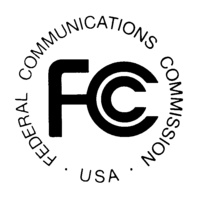 It's been less than a week since the resignation of Kevin Martin from his position as Chairman of the FCC, but his temporary replacement is wasting no time making some changes. Commissioner Michael Copps, who is keeping the chairman's seat warm until Barrack Obama's nominee Julius Genachowski is approved by the Senate, has promised to improve agency communications and credibility.
It's been less than a week since the resignation of Kevin Martin from his position as Chairman of the FCC, but his temporary replacement is wasting no time making some changes. Commissioner Michael Copps, who is keeping the chairman's seat warm until Barrack Obama's nominee Julius Genachowski is approved by the Senate, has promised to improve agency communications and credibility.
In remarks made after his appointment as interim FCC Chairman Copps outlined three goals for the agency. The first is intra-agency communication. He promised the various internal divisions would work more closely together, saying "There is no reason I can see for not having the various Bureaus and Offices more closely collaborating with each other on issues of mutual interest." He added "If we can’t communicate with ourselves, we shouldn’t have the word “Communications” in our title."
He also indicated there would be more and better communication between the commissioners and those same internal bureaus. He plans to hold a weekly meeting with the head of each bureau and office in attendance. He's also inviting each commissioner to send a representative. Just a few days ago Commissioner Robert McDowell criticized the outgoing chairman for not involving his colleagues in agency planning.
Read more...
Written by Rich Fiscus @ 28 Jan 2009 12:57
 On Tuesday the European Commission sponsored the Personal Music Players Stakeholders' Conference in response to a study commissioned last Fall which found as many as 10% of people who use personal music players may be at risk for hearing loss. The study was conducted by the EC Health & Consumer Protection Directorate-General who issued their initial report in October.
On Tuesday the European Commission sponsored the Personal Music Players Stakeholders' Conference in response to a study commissioned last Fall which found as many as 10% of people who use personal music players may be at risk for hearing loss. The study was conducted by the EC Health & Consumer Protection Directorate-General who issued their initial report in October.
In her keynote address to open the one day conference, European Consumer Commissioner Meglena Kuneva indicated an interest in hearing from the industry and consumer interest representatives present to plot a course for future research, technology development, and potentially even regulation. She noted "The Scientific Committee opinion highlights that, if consumers use their personal music players for only one hour per day each week at more than 89 decibels, they would exceed the current limits in place for noise allowed in the workplace."
Last year's report warns "Literature data indicate that excessive acute exposures to PMPs music at maximal or near maximal output volume can produce reversible hearing impairment (temporary threshold shift) up to 30 dB at 4 kHz in some individuals after short time (one or more hours) of exposure." However it also cautions that more research needs to be done in order to answer a number of outstanding questions.
Written by Rich Fiscus @ 28 Jan 2009 10:39
 In recent months the open source Theora video format has seen something of a renaissance with the long awaited transition from beta to release status. Much of the interest in Theora can be traced directly to Firefox developers.
In recent months the open source Theora video format has seen something of a renaissance with the long awaited transition from beta to release status. Much of the interest in Theora can be traced directly to Firefox developers.
Now the organization behind Firefox, the Mozilla Foundation is making yet another contribution to Theora. This time it's monetary. They've announced a grant of $100,000 for the development of Theora encoding and playback software. The grant will be administered by the Wikimedia Foundation, the organization which has operated Wikipedia since 2003.
Mike Shaver, Vice President of Engineering for the Mozilla Corporation, wrote on his blog, "Our commitment to the success of open video on the web requires that we select codecs for Firefox that are usable by everyone, without restriction or licensing fee. To that end, we’ve chosen Theora as the format for Firefox 3.1."
Wikimedia Foundation Deputy Director Eric Möller made the announcement on that organization's blog, writing "Wikimedia and Mozilla want to help to build a web where video and audio are first class citizens: easy to use and manipulate by anyone, without compulsory royalty schemes or other barriers to participation."
Read more...
Written by Rich Fiscus @ 27 Jan 2009 1:12
 Western Digital has just announced a new SATA II hard drive with a whopping 2TB (2 trillion Byte) capacity. The company says not only is it bigger than other hard drives on the market, but it also uses less power.
Western Digital has just announced a new SATA II hard drive with a whopping 2TB (2 trillion Byte) capacity. The company says not only is it bigger than other hard drives on the market, but it also uses less power.
"With the launch of the new WD Caviar Green 2 TB hard drive, customers receive the additional capacities needed to operate today's highly advanced programs and high-resolution digital files while using less power than typical drives with similar performance and capacities," said Western Digital senior vice president Jim Morris
According to the company's website, power usage of the highest capacity Caviar Green is just barely better than previous models (Caviar Blue and Caviar Black) during Read/Write operations. Where it really seems to shine is when it's idle. While earlier models use nearly the same power whether they're doing anything or not, the Caviar Green's power drops by nearly half.
When comparing Caviar Green hard drives with similar specs to their Caviar Blue and Black predecessors the difference is much more pronounced. According to the website a 1TB Caviar Green drive with 16MB of cache uses about 64% as much power as a comparable Caviar Black. When idle it uses just 36% as much power.
Written by Rich Fiscus @ 27 Jan 2009 12:30
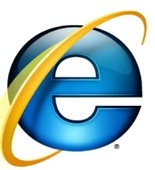 Microsoft has made the first release candidate of Internet Explorer 8 available for download. The latest version of the browser boasts better standards compliance with both HTML 4.01 and CSS 2.1.
Microsoft has made the first release candidate of Internet Explorer 8 available for download. The latest version of the browser boasts better standards compliance with both HTML 4.01 and CSS 2.1.
There are also some new features added to IE 8, including something they're calling Accelators. Each accelerator corresponds to an online service which can be used directly on a page's content. For example, you could highlight a street address and use a map service's accelerator to look it up without the hassle of copying and pasting into a different page.
Other additions to the world's most popular browser include enhancements to the built-in search and suggestions for websites you may be interested in based on your browsing history.
You can download Internet Explorer 8 RC (Release Candidate) 1 from our Downloads section.
Written by Rich Fiscus @ 27 Jan 2009 2:49
 About six months ago Roku introduced a set-top box which allowed Netflix subscribers to connect the video rental giant's Watch Instantly service to a TV. It was an immediate success and was followed by an ever expanding list of devices including Blu-ray players, game consoles, and even HDTVs. During the Netflix conference call on last quarter's earnings CEO, Reed Hastings, explained how these strategic partnerships have helped them beat their own growth estimates in spite of the poor economy.
About six months ago Roku introduced a set-top box which allowed Netflix subscribers to connect the video rental giant's Watch Instantly service to a TV. It was an immediate success and was followed by an ever expanding list of devices including Blu-ray players, game consoles, and even HDTVs. During the Netflix conference call on last quarter's earnings CEO, Reed Hastings, explained how these strategic partnerships have helped them beat their own growth estimates in spite of the poor economy.
"In hindsight, in Q4 we under-forecast our subscriber growth primarily because we underestimated the positive impact of the introduction of the multifunction CE devices from LG Electronics, Samsung, Microsoft, and TiVo that promote Netflix streaming" said Hastings. He added "The precise impact of the recession is unclear, but it's very clear that streaming is energizing our growth."
Read more...
Written by Rich Fiscus @ 26 Jan 2009 11:57
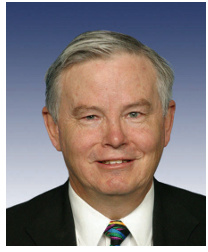 As Senate Democrats have worked hard to pass the legislation requested by President Obama to postpone the DTV transition until June, Republicans have been working on legislation of their own. Today a bill was introduced by Congressman Joe Barton of Texas that would provide an additional $250 million to the DTV voucher program. The program, which provides voucher cards to be redeemed for up to $40 toward a DTV converter, is currently slated to provide $1.34 billion to consumers.
As Senate Democrats have worked hard to pass the legislation requested by President Obama to postpone the DTV transition until June, Republicans have been working on legislation of their own. Today a bill was introduced by Congressman Joe Barton of Texas that would provide an additional $250 million to the DTV voucher program. The program, which provides voucher cards to be redeemed for up to $40 toward a DTV converter, is currently slated to provide $1.34 billion to consumers.
The problem, according to the bill's authors, is that all the money set aside for DTV vouchers is currently tied up. Even though just over half has actually been spent through voucher redemption for converter boxes, the remaining amount is already committed to others still in circulation. As it currently stands new vouchers can't be sent out until those expire, freeing up the necessary funds.
They also point out that this may not even cost any additional money in the long run as it's possible $250 million worth of vouchers may go unredeemed by the program's end. By authorizing the additional funds now they say there would be no need to postpone the transition, avoiding any delay in turning over portions of the broadcast spectrum currently used for analog TV to public safety personnel and wireless internet providers.
Read more...
Written by Rich Fiscus @ 26 Jan 2009 11:03
 According to numbers released just last week by The Nielsen Company, 5.7 million US households are still not prepared for the upcoming DTV transition. Nielsen analysts say this is actually a big improvement from the end of last year when the number was around 7 million.
According to numbers released just last week by The Nielsen Company, 5.7 million US households are still not prepared for the upcoming DTV transition. Nielsen analysts say this is actually a big improvement from the end of last year when the number was around 7 million.
Despite the impressive gains so far in the month of January, a significant percentage of the population is still unprepared for what's going on in less than a month. Around 10% of African-American and Hispanic households aren't even close to being ready according to the Nielsen data, gathered from the same sample used for their famous television ratings.
“Nielsen has been preparing for the transition to digital television for more than two years,” said company Vice Chair Susan Whiting. “Because we recognize that accurate and reliable information on consumer behavior is essential to this transition, we’ve been sharing our data with clients, government leaders and the public so they could track progress to digital readiness.”
In recent weeks there has been a movement in Washington to delay the transition a few more months. Supporters of the idea include President Obama and several key members of Congress. This isn't particularly surprising given the comments made at various hearings on the subject in the past. In the days leading up to the inauguration of President Obama the chorus of critics was even joined by an FCC commissioner.
Read more...
Written by Rich Fiscus @ 24 Jan 2009 10:33
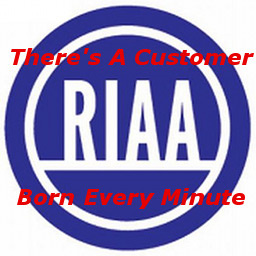 In 2007 Joel Tenenbaum joined tens of thousands of defendants accused by the RIAA of violating their members' copyrights by sharing files using a P2P file sharing service. But unlike the vast majority of the defendants in these cases he chose to fight rather than settle. Even more remarkably he opted to represent himself in court against an entire team of high priced lawyers.
In 2007 Joel Tenenbaum joined tens of thousands of defendants accused by the RIAA of violating their members' copyrights by sharing files using a P2P file sharing service. But unlike the vast majority of the defendants in these cases he chose to fight rather than settle. Even more remarkably he opted to represent himself in court against an entire team of high priced lawyers.
Sometimes the best defense is a good offense, and ultimately that became Joel Tenenbaum's strategy. Of course that was after he was introduced to a tactic the RIAA has used repeatedly to punish those who dare to challenge them in court. They stalled. Then they stalled some more. Then they stalled even more. Eventually he decided to fight back and began filing counter claims.
Finally he reached the point where the case was too much to handle without more legal expertise. That was when a lawyer stepped up to help Mr. Tenenbaum out. That someone was Harvard Law School Professor Charles Nesson. Recently I talked to Professor Nesson to get a better understanding of the case's details.
Read more...
Written by Rich Fiscus @ 19 Jan 2009 4:14
 Why doesn't the RIAA want you to see their lawyers in action? That's the question being asked by bloggers and journalists around the US and across the world as the recording industry group fights to deny The Berkman Center for Internet & Society at Harvard University permission to record and stream a hearing in one of their infamous P2P copyright infringement cases.
Why doesn't the RIAA want you to see their lawyers in action? That's the question being asked by bloggers and journalists around the US and across the world as the recording industry group fights to deny The Berkman Center for Internet & Society at Harvard University permission to record and stream a hearing in one of their infamous P2P copyright infringement cases.
Leaving aside the lawyers' arguments about courtroom rules, their basic issue with Judge Nancy Gertner's decision allowing the recording and distribution is an alleged bias by the Berkman Center. In an appeal filed last week they point out that the center's website isn't impartial and includes information that they consider prejudicial against the labels and their lawsuit.
Even though it's true that the video would only be available from the Berkman Center's website at the time of the hearing, what the RIAA fails to mention is that it will subsequently be available for anyone to use in part or in full. The RIAA could even use it themselves.
It's an odd position given the RIAA's previous statements that the P2P lawsuits are intended to call attention to their rights and remedies as copyright holders rather than simply punishing individuals. And yet when given the chance to reach the exact demographic they're targetting it becomes a problem.
Read more...
Written by Rich Fiscus @ 19 Jan 2009 2:27
 Perhaps the most controversial decision in the early days of HDTV standards was the use of interlacing at the highest resolution (1080i). The introduction of Blu-ray and HD DVD also brought the standardization of progressive content (1080p) which has been responsible for the introduction of many more HDTVs capable of displaying these signals. Now Dish Network has brought 1080p to their online Video On Demand (VOD) service.
Perhaps the most controversial decision in the early days of HDTV standards was the use of interlacing at the highest resolution (1080i). The introduction of Blu-ray and HD DVD also brought the standardization of progressive content (1080p) which has been responsible for the introduction of many more HDTVs capable of displaying these signals. Now Dish Network has brought 1080p to their online Video On Demand (VOD) service.
Dish Network's IP-VOD service is similar to offerings from cable companies, but due to the lack of interactivity inherent in satellite communication it requires a DVR and broadband internet connection. Subscribers with a MPEG-4 HD DVR will now be able to get A&E's new series The Beast in 1080p.
"We are thrilled to work with A&E in pioneering these efforts by taking television to the next level using 1080p format," said Jessica Insalaco, DISH Network's Chief Marketing Officer. "As the first pay-TV provider to first offer VOD movies and now offer a TV series in 1080p, DISH Network continues to lead the industry when it comes to delivering the best quality programming options, DVR technology and overall value for our customers."
Read more...
Written by Rich Fiscus @ 19 Jan 2009 1:10
 The RIAA is no stranger to outlandish legal arguments in P2P copyright infringement cases. This isn't particularly surprising given that they've very successfully avoided arguing most of them in court, preferring instead to use the obstacle of expensive litigation to frighten defendants into settling. But sometimes a judge gets the chanceto shine a light on their creative readings of thelaw. In one such case a federal judge has denied the RIAA's claim for damages on the grounds that they must first prove their losses.
The RIAA is no stranger to outlandish legal arguments in P2P copyright infringement cases. This isn't particularly surprising given that they've very successfully avoided arguing most of them in court, preferring instead to use the obstacle of expensive litigation to frighten defendants into settling. But sometimes a judge gets the chanceto shine a light on their creative readings of thelaw. In one such case a federal judge has denied the RIAA's claim for damages on the grounds that they must first prove their losses.
It seems like an obvious enough point. For example, it's a long established tenet of contract law that you can't sue for losses over a deal you might have made with someone. And if someone steals physical merchandise you can't get restitution from a list of what you think was probably stolen. But music, movie, and software conglomerates have always characterized every free download of a copyrighted work as a lost sale.
Read more...
Written by Rich Fiscus @ 16 Jan 2009 2:02
 It's no secret that many people, including US President Elect Barrack Obama, have questioned how prepared the US is for the DTV transition coming next month. FCC Chairman Kevin Martin has been the target of much criticism over his relatively hands-off approach to the consumer side of the equation. Those voices have now been joined by one of Martin's fellow FCC commissioners.
It's no secret that many people, including US President Elect Barrack Obama, have questioned how prepared the US is for the DTV transition coming next month. FCC Chairman Kevin Martin has been the target of much criticism over his relatively hands-off approach to the consumer side of the equation. Those voices have now been joined by one of Martin's fellow FCC commissioners.
On January 14 Commissioner Robert McDowell sent a letter to Kevin Martin regarding the agency's preparations for the transition. The most disconcerting aspect of the letter was McDowell's allegation Martin has played his cards so close to the vest that even the other commisioners aren't involved or even sure of what's being done.
"In short, it appears that the Commision's efforts to date are inadequate. As neither I, nor either of our colleagues, have been consulted in advance or otherwise asked to assist with the tasks at hand, I cannot be certain regarding the extent of the Commission's shortcomings" wrote McDowell.
He went on to suggest that the FCC's call center is unprepared for the call volume they're likely to experience. He expressed concern that "callers that opt for a live operator are sometimes spontaneously disconnected rather than re-routed." and said "the Commission must be better organized, more energetic and must coordinate its efforts in a more open and collaborative manner."
Read more...
Written by Rich Fiscus @ 15 Jan 2009 4:04
 Imagine you've gone to see a major musical act live and somehow managed to record several concerts with your HDV camcorder. Hoping to share your footage with other fans you make it available via BitTorrent, but how can you let people know how to get it. If the band happens to be Nine Inch Nails you might contact Trent Reznor and let him publicize it for you.
Imagine you've gone to see a major musical act live and somehow managed to record several concerts with your HDV camcorder. Hoping to share your footage with other fans you make it available via BitTorrent, but how can you let people know how to get it. If the band happens to be Nine Inch Nails you might contact Trent Reznor and let him publicize it for you.
In fact that's exactly what happened, And keeping with his recent history of innovative promotions he passed the news on to NIN fans via the band's website.
The footage comes from shows in Victoria, British Columbia, Portland, Oregon, and Sacramento, California. Being high definition (1080i) MPEG-2 video they total more than 400GB between them. If you'd like to download them for yourself you can use the links below.
In addition to a lot of free hard drive space, you'll need a BitTorrent client to download and some skill at working with high definition MPEG-2 files. Unless you have a Mac you'll also need to learn how to demux HDV2 files to a standard elementary MPEG-2 video stream.
If you're wondering why Trent Reznor is promoting what amounts to bootleg video that he can't sell and won't profit from, think about this. It gives him free publicity in many places (like Afterdawn) where he wouldn't normally get mentioned.
Read more...
Written by Rich Fiscus @ 15 Jan 2009 2:45
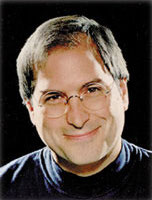 For months Apple CEO Steve Jobs has been confronted with questions about his health brought on by obvious weight loss. Earlier this month he decided to clear the air and publically admit he was being treated for hormone problems.
For months Apple CEO Steve Jobs has been confronted with questions about his health brought on by obvious weight loss. Earlier this month he decided to clear the air and publically admit he was being treated for hormone problems.
In a statement earlier this month he said "As many of you know, I have been losing weight throughout 2008. The reason has been a mystery to me and my doctors. A few weeks ago, I decided that getting to the root cause of this and reversing it needed to become my #1 priority."
"Fortunately, after further testing, my doctors think they have found the cause—a hormone imbalance that has been “robbing” me of the proteins my body needs to be healthy. Sophisticated blood tests have confirmed this diagnosis."
Apparently though, his explanation wasn't enough to satisfy many people so he's decided it would be in Apple's best interest for him to temporarily give up his duties with Apple and concentrate on his treatment.
Apple realeased the text of an email Jobs sent the company's employees which stated in part "In order to take myself out of the limelight and focus on my health, and to allow everyone at Apple to focus on delivering extraordinary products, I have decided to take a medical leave of absence until the end of June.
Read more...
Written by Rich Fiscus @ 15 Jan 2009 2:15
 For several years Echostar has been involved in a legal battle with TiVo over Dish Network DVRs that were found to be infringing on that company's 'Time Warp' patent. To date every court decision has gone in TiVo's favor. Now they've managed to get the US Patent and Trademark Office (USPTO) to re-examine the patent, hoping to have it invalidated.
For several years Echostar has been involved in a legal battle with TiVo over Dish Network DVRs that were found to be infringing on that company's 'Time Warp' patent. To date every court decision has gone in TiVo's favor. Now they've managed to get the US Patent and Trademark Office (USPTO) to re-examine the patent, hoping to have it invalidated.
Echostar released a statement today saying "We are pleased that the Patent and Trademark Office (PTO) granted our Petition for Re-Examination of the software claims of TiVo's '389 patent, which are the subject of TiVo's current motion for contempt. The PTO found that there is a 'substantial new question' of patentability as to the software claims in light of prior patents that appear to render TiVo's '389 patent invalid as obvious."
Since being sued for patent infringement Echostar has redesigned their DVRs to avoid paying TiVo royalties, but if the patent is upheld they'll owe TiVo $74 million.
Written by Rich Fiscus @ 14 Jan 2009 2:04
 Lately most advances in DVD player technology seems to center around Blu-ray. While that makes some sense in terms of manufacturer goals, reality is that standard DVD players still account for the majority of consumer spending. Pioneer is looking to take advantage of that market with their new DV-420V DVD player.
Lately most advances in DVD player technology seems to center around Blu-ray. While that makes some sense in terms of manufacturer goals, reality is that standard DVD players still account for the majority of consumer spending. Pioneer is looking to take advantage of that market with their new DV-420V DVD player.
In addition to playing standard DVDs the DV-420V can also play MPEG-4 AVI and WMV (Windows Media Video) files and includes upconversion capabilities.
But what makes the new player really interesting is its audio features. Like most DVD players it supports MP3 playback, but also adds support for both AAC and WMA (Windows Media Audio).
Read more...
Written by Rich Fiscus @ 14 Jan 2009 1:21
 According to figures unveiled at CES by Digital Entertainment Group (DEG), in 2008 US DVD spending dropped yet again in 2008. The 5.5% decrease compared to 2007, which includes sales and rentals of both standard DVDs and Blu-ray discs, continues a trend which began in 2007 when spending fell over 3% from the year before.
According to figures unveiled at CES by Digital Entertainment Group (DEG), in 2008 US DVD spending dropped yet again in 2008. The 5.5% decrease compared to 2007, which includes sales and rentals of both standard DVDs and Blu-ray discs, continues a trend which began in 2007 when spending fell over 3% from the year before.
As expected, one potentially bright spot was Blu-ray. To date nearly 10 million Blu-ray players have been sold, including PS3 game consoles. Blu-ray discs accounted for almost $750 million.
Although disc sales fell 19% to $14.5 billion, rental revenue remained flat at $7.5 billion. Although it's possible this trend will change as prices for Blu-ray discs approach what consumers are used to for standard DVDs, it may be that people simply don't have an interest in buying the same number of discs as in previous years.
Or it could be a combination of personal collections that are already established and increased competition from products like game consoles. Only time will tell which is a greater factor. Despite the on-going recession, Blu-ray is expected to continue gaining market share in 2009. Perhaps this will be the year we see whether this translates into increased disc sales.
Written by Rich Fiscus @ 13 Jan 2009 2:01
 Often when CES gets under way it's interesting to look at trends among different manufacturers. This year is no exception, and as we told you yesterday there are a number of companies showing off green technology. Another trend for home video products seems to be streaming media.
Often when CES gets under way it's interesting to look at trends among different manufacturers. This year is no exception, and as we told you yesterday there are a number of companies showing off green technology. Another trend for home video products seems to be streaming media.
Whether you want to stream video from the internet or just connect a subwoofer wirelessly, there are a number of products being displayed that may be of interest.
Perhaps the most prominent internet streaming video source today is Netflix. Although known more for revolutionizing the DVD rental business, Netflix also boasts the largest number of devices to get their video from the internet to your TV. This year at CES both LG and Vizio have announced plans to deliver Netflix compatible TVs later this year.
Read more...
Written by Rich Fiscus @ 13 Jan 2009 1:45
 Panasonic hasn't had the high profile among Blu-ray backers that the formats other major backers have. In fact just based on their decision to let others, such as Sony and Disney, take the lead in marketing it you might not realize they have as much to gain from its success as anyone. After all they own as many patents for the format as any other company and more than any besides Sony.
Panasonic hasn't had the high profile among Blu-ray backers that the formats other major backers have. In fact just based on their decision to let others, such as Sony and Disney, take the lead in marketing it you might not realize they have as much to gain from its success as anyone. After all they own as many patents for the format as any other company and more than any besides Sony.
This year they seem determined to make more of a market impact, starting with the introduction of new Blu-ray players capable of streaming video from online sources like Amazon and YouTube. Support for the Netflix streaming video service is conspicuously absent.
The company has also added other improvements to their line of players.Perhaps one of the most interesting is the addition of a VHS deck to one model.
Read more...
Written by Rich Fiscus @ 12 Jan 2009 11:52
 Just last year some in the financial community were highly critical of Netflix for making streaming video their focus. Just over 6 months later it looks like Netflix CEO Reed Hastings must know something those analysts don't because the number of consumer electronics devices capable of playing his company's online video seems to grow faster every month. Last week the company added a new category of devices to that list - HDTVs.
Just last year some in the financial community were highly critical of Netflix for making streaming video their focus. Just over 6 months later it looks like Netflix CEO Reed Hastings must know something those analysts don't because the number of consumer electronics devices capable of playing his company's online video seems to grow faster every month. Last week the company added a new category of devices to that list - HDTVs.
Last week, during the leadup to CES, both LG and Vizio announced plans to make TVs that can play Netflix streaming video without the need for even a set-top box of any kind. LG is showing off their Broadband HDTVs at CES this week, and will start selling them sometime in the spring. The Vizio Connected HDTVs are slated to be available at an unspecified time later in the year.
Read more...
Written by Rich Fiscus @ 10 Jan 2009 2:10
 Earlier this week US President Elect Barrack Obama announced his selections for some key positions at the Department of Justice. One of the names on his list drew a lot of attention among people who have been watching the RIAA's lawsuit campaign against file sharers.That's because his choice for Associate Attorney General happens to be a long time RIAA lawyer who has worked on some of their highest profile P2P lawsuits.
Earlier this week US President Elect Barrack Obama announced his selections for some key positions at the Department of Justice. One of the names on his list drew a lot of attention among people who have been watching the RIAA's lawsuit campaign against file sharers.That's because his choice for Associate Attorney General happens to be a long time RIAA lawyer who has worked on some of their highest profile P2P lawsuits.
Tom Perrelli has been working with the RIAA as far back as the Napster lawsuit. He was involved in the landmark 2002 case in which the RIAA attempted to write their own subpoenas without any judicial oversight. He's also done work for SoundExchange, and seems to have been instrumental in pushing through draconian internet radio royalties.
It's entirely possible that the appointment has nothing to do with Perrelli's work for the recording industry. He was already a well respected Washington DC lawyer before he began working on RIAA cases and even worked in the Justice Department during the Clinton administration.
Read more...

 Several months ago documents outlining a secret proposal from the US Trade Representative (USTR) for a new intellectual property treaty were leaked to the public. Although the few details we know about negotiahe Anti-Counterfeiting Trade Agreement (ACTA) show it to be a collaboration between entertainment industry representatives and government officials in various countries. Unfortunately most of what's been published so far is really just speculation.
Several months ago documents outlining a secret proposal from the US Trade Representative (USTR) for a new intellectual property treaty were leaked to the public. Although the few details we know about negotiahe Anti-Counterfeiting Trade Agreement (ACTA) show it to be a collaboration between entertainment industry representatives and government officials in various countries. Unfortunately most of what's been published so far is really just speculation.

 It's no secret that certain elements in the US Federal Government would like to see all copyright infringement
It's no secret that certain elements in the US Federal Government would like to see all copyright infringement  In an attempt to fight movie piracy the UK Film Council has set up a website aimed at helping consumers find legal content.
In an attempt to fight movie piracy the UK Film Council has set up a website aimed at helping consumers find legal content. 
 It's no secret that the big Hollywood studios haven't exactly been eager to back online video distribution. In fact their unwillingness to assume any risk in such ventures has arguably slowed the entire market more than any other force. That's why it's so surprising to see a company owned by several studios announcing a new service that will combine television and internet-based video on demand.
It's no secret that the big Hollywood studios haven't exactly been eager to back online video distribution. In fact their unwillingness to assume any risk in such ventures has arguably slowed the entire market more than any other force. That's why it's so surprising to see a company owned by several studios announcing a new service that will combine television and internet-based video on demand.
 If you suspect your ISP is throttling BitTorrent traffic and don't want to wait for the Electronic Frontier Foundation (EFF)
If you suspect your ISP is throttling BitTorrent traffic and don't want to wait for the Electronic Frontier Foundation (EFF)  Today the US House of Representatives voted down a bill that would have postponed the DTV transition scheduled for February 17. The DTV Delay Act, which
Today the US House of Representatives voted down a bill that would have postponed the DTV transition scheduled for February 17. The DTV Delay Act, which  It's been less than a week since the resignation of Kevin Martin from his position as Chairman of the FCC, but his temporary replacement is wasting no time making some changes. Commissioner Michael Copps, who is keeping the chairman's seat warm until Barrack Obama's nominee Julius Genachowski is approved by the Senate, has promised to improve agency communications and credibility.
It's been less than a week since the resignation of Kevin Martin from his position as Chairman of the FCC, but his temporary replacement is wasting no time making some changes. Commissioner Michael Copps, who is keeping the chairman's seat warm until Barrack Obama's nominee Julius Genachowski is approved by the Senate, has promised to improve agency communications and credibility.
 On Tuesday the European Commission sponsored the Personal Music Players Stakeholders' Conference in response to a study commissioned last Fall which found as many as 10% of people who use personal music players may be at risk for hearing loss. The study was conducted by the EC Health & Consumer Protection Directorate-General who issued their initial report in October.
On Tuesday the European Commission sponsored the Personal Music Players Stakeholders' Conference in response to a study commissioned last Fall which found as many as 10% of people who use personal music players may be at risk for hearing loss. The study was conducted by the EC Health & Consumer Protection Directorate-General who issued their initial report in October.
 In recent months the open source
In recent months the open source  Western Digital has just announced a new SATA II hard drive with a whopping 2TB (2 trillion Byte) capacity. The company says not only is it bigger than other hard drives on the market, but it also uses less power.
Western Digital has just announced a new SATA II hard drive with a whopping 2TB (2 trillion Byte) capacity. The company says not only is it bigger than other hard drives on the market, but it also uses less power.
 Microsoft has made the first release candidate of Internet Explorer 8 available for download. The latest version of the browser boasts better standards compliance with both HTML 4.01 and CSS 2.1.
Microsoft has made the first release candidate of Internet Explorer 8 available for download. The latest version of the browser boasts better standards compliance with both HTML 4.01 and CSS 2.1.
 About six months ago Roku
About six months ago Roku  As Senate Democrats have worked hard to pass the legislation requested by President Obama to
As Senate Democrats have worked hard to pass the legislation requested by President Obama to  In 2007 Joel Tenenbaum joined tens of thousands of defendants accused by the RIAA of violating their members' copyrights by sharing files using a P2P file sharing service. But unlike the vast majority of the defendants in these cases he chose to fight rather than settle. Even more remarkably he opted to represent himself in court against an entire team of high priced lawyers.
In 2007 Joel Tenenbaum joined tens of thousands of defendants accused by the RIAA of violating their members' copyrights by sharing files using a P2P file sharing service. But unlike the vast majority of the defendants in these cases he chose to fight rather than settle. Even more remarkably he opted to represent himself in court against an entire team of high priced lawyers.
 Why doesn't the
Why doesn't the  Perhaps the most controversial decision in the early days of HDTV standards was the use of interlacing at the highest resolution (1080i). The introduction of Blu-ray and HD DVD also brought the standardization of progressive content (1080p) which has been responsible for the introduction of many more HDTVs capable of displaying these signals. Now Dish Network has brought 1080p to their online Video On Demand (VOD) service.
Perhaps the most controversial decision in the early days of HDTV standards was the use of interlacing at the highest resolution (1080i). The introduction of Blu-ray and HD DVD also brought the standardization of progressive content (1080p) which has been responsible for the introduction of many more HDTVs capable of displaying these signals. Now Dish Network has brought 1080p to their online Video On Demand (VOD) service.
 The
The  Imagine you've gone to see a major musical act live and somehow managed to record several concerts with your HDV camcorder. Hoping to share your footage with other fans you make it available via BitTorrent, but how can you let people know how to get it. If the band happens to be Nine Inch Nails you might contact Trent Reznor and let him publicize it for you.
Imagine you've gone to see a major musical act live and somehow managed to record several concerts with your HDV camcorder. Hoping to share your footage with other fans you make it available via BitTorrent, but how can you let people know how to get it. If the band happens to be Nine Inch Nails you might contact Trent Reznor and let him publicize it for you.
 For months
For months  For several years Echostar has been involved in a legal battle with
For several years Echostar has been involved in a legal battle with  Lately most advances in
Lately most advances in  According to figures unveiled at
According to figures unveiled at  Often when
Often when 
 Earlier this week US President Elect Barrack Obama announced his selections for some key positions at the Department of Justice. One of the names on his list drew a lot of attention among people who have been watching the
Earlier this week US President Elect Barrack Obama announced his selections for some key positions at the Department of Justice. One of the names on his list drew a lot of attention among people who have been watching the 






